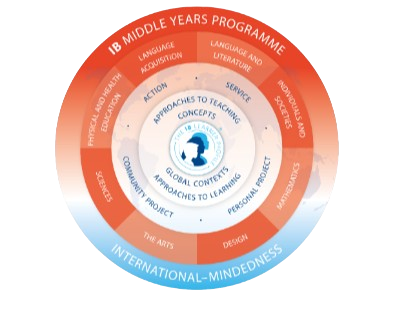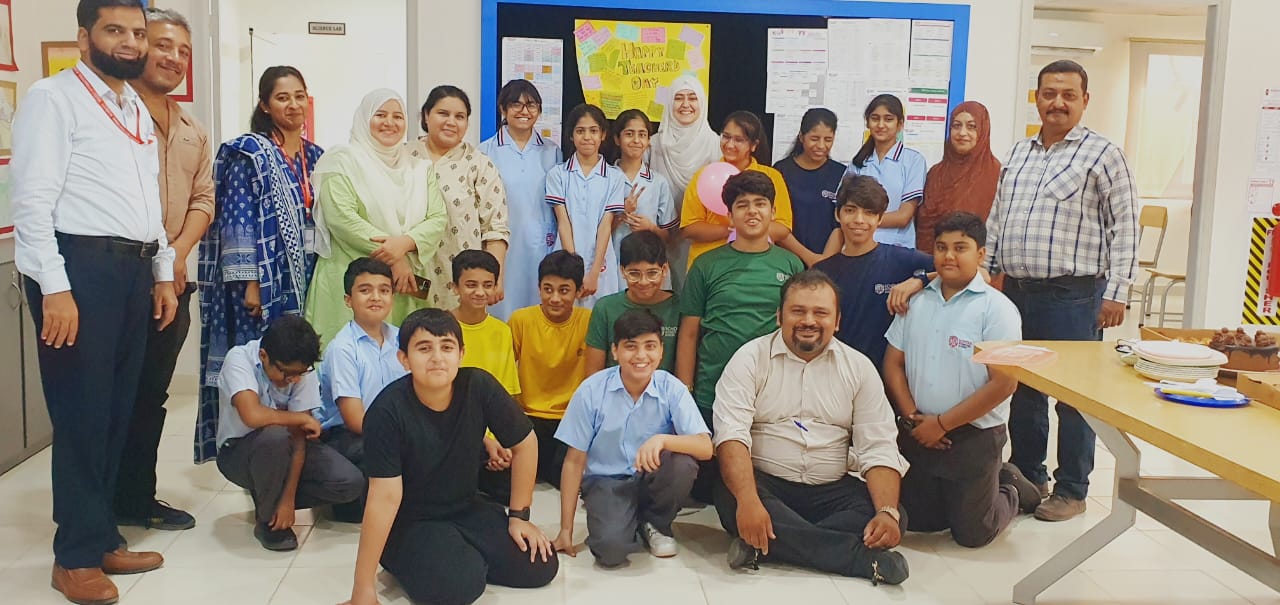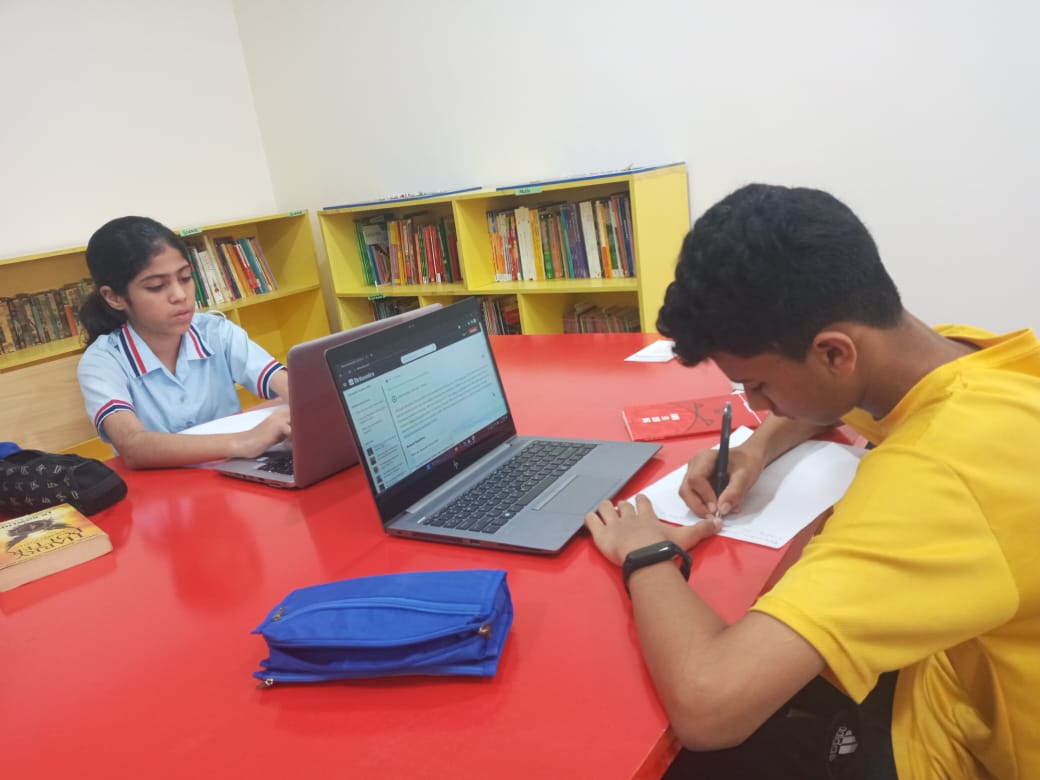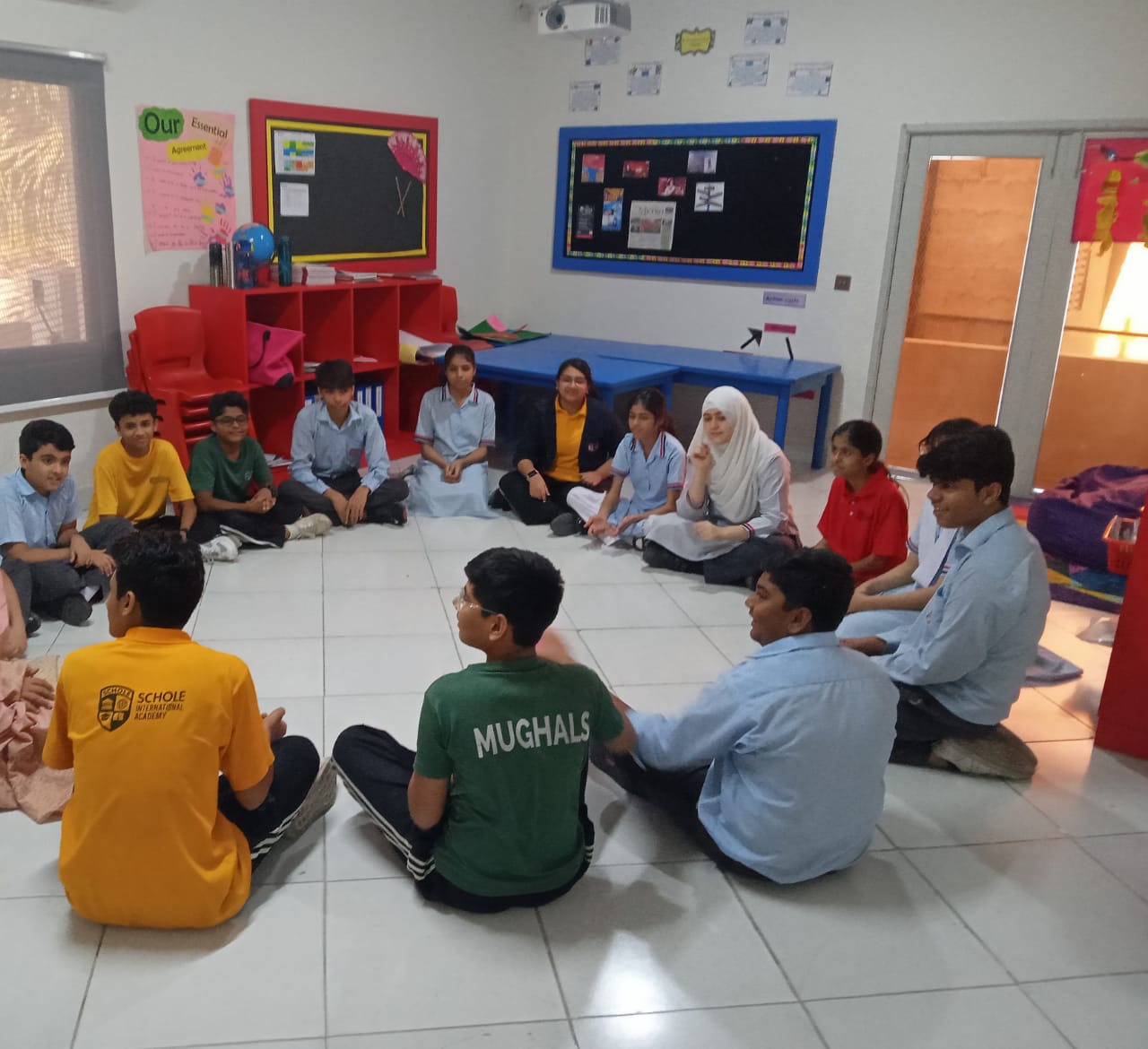Middle Years Programme
Middle Years Programme (MYP)
The Middle Years Programme (MYP) is a five-year programme designed for learners aged 11–16 by the International Baccalaureate (IB). The MYP curriculum contains eight subject groups, providing a broad and balanced education. Students who complete the MYP are well-prepared to undertake the IB Diploma Programme (DP) or equivalents in the Cambridge system, such as A
Levels/Intermediate etc

Flexible framework
The programme’s flexible curriculum is compatible with Single National Curriculum (SNC) and able to meet local and national requirements. Our MYP students are prepared to undertake the Pakistan Studies and Islamiyat exams through Cambridge IGCSE along with their final MYP
eAssessments.

Subject Groups
The MYP ensures breadth and depth of understanding through study in eight subject groups.
*There is a Subject-group flexibility in MYP years 4 and 5 as provided by the IB.
- Group 1- Language and Literature (Language A-English)
- Group 2- Language Acquisition (Languages B-Urdu)
- Group 3- Individuals and Societies
- Group 4- Sciences
- Group 5- Mathematics
- Group 6- Arts (Visual Arts)
- Group 7- Design
- Group 8- Physical and Health Education


Note:
In addition to the above mentioned IB subjects, it is compulsory for students who are Pakistani national and/or passport holders to take Pakistan Studies to meet national requirements. This is important for an equivalency certificate if students plan on going to a university in Pakistan.
Islamiat is compulsory for all Muslim students and is also required for the equivalency for further education in Pakistan.
Any student who wishes to be exempted from the subjects for National requirement are required to submit a written application.
The MYP ensures breadth and depth of understanding through study in eight subject groups.
Addressing the intellectual, social, emotional and physical well-being of students holistically, the
MYP prepares them to take principled action by participating in service within the community and
requiring study of at least two languages (language of instruction and additional language of choice)
to support the understanding of their own cultures and those of others.
MYP students engage with big ideas, rather than simply memorizing facts in order to prepare for
exams. As a result, they develop learning skills that they can rely on throughout the course of their
independent, purpose-driven lives.
Action in the MYP is built upon the action initiated in the PYP and continues as an essential
component of the learning process, both as part of the programme’s educational philosophy and as a
practical outcome of students’ learning.
Service requires that students are able to build authentic connections between what they learn in the
classroom and what they encounter in the community. When connected to classroom learning, the
experience of service offers opportunities to apply concepts, skills and knowledge as students explore
the community in its complexity, gain personal insight, develop existing and new skills, and build
confidence and responsibility as they travel down the road as ‘actors’ in the ‘real world’ beyond
school.
The process by which students come to understand bodies of knowledge and modes of thinking from
two or more disciplines and then integrate them to create a new understanding.
Students demonstrate this by bringing together concepts, methods or forms of communication to
explain a phenomenon, solve a problem, and create a product that may not happen through a single
discipline.
The MYP personal project is a student-centered and age-appropriate practical exploration in which
students consolidate their learning throughout the programme. This independent long-term project of
approximately 25 hours is required to be completed by every student in the last year of the program,
to qualify for MYP certificate.
Today’s students are increasingly digitally aware and engaged with technology. To meet their needs,
the MYP offers a range of innovative eAssessments (external assessments) at the end of Year-5 that
go beyond traditional examinations. MYP eAssessments focus on conceptual understanding and the
ability to apply knowledge in complex, unfamiliar situations.
To earn the MYP certificate, students must complete 2 hour on-screen examinations in each of the
following: language and literature, individuals and society, sciences, mathematics and
interdisciplinary learning; submit an ePortfolio in language acquisition and one of the following:
design, arts or physical and health education; complete a moderated personal project; and complete
school-based expectations for service as action (community service)
MYP eAssessment helps schools make robust and reliable judgments about students’ development as
global learners, their ability to transfer understanding to unfamiliar situations, and their capacity to
connect academic study with the world beyond the classroom.
